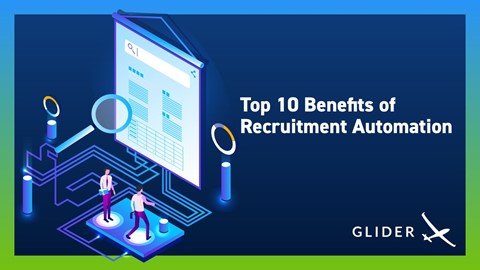
Make talent quality your leading analytic with skills-based hiring solution.

Ever since the term, ‘automation’ was coined in 1946, it has been forming an identity in every domain across the globe. From business models to core operations, organizations are exponentially incorporating automation and groundbreaking technologies on multiple platforms in terms of speed, size, and scope.
Automation is another popular term for digitization. In the world of economics, it simply means that the companies do not incur diminishing returns to scale. For example, over the past few years, many labor-intensive nations have seen a decline in the share of labor in the percentage of GDP, mainly due to progress in innovations in automation and technologies.
Take recruitment automation for example. What was once thought of as only a depository for resumes is vastly revolutionizing the world of recruitment and hiring. Though Human Resources is an opsimath in automation adoption, sourcing through resumes, scheduling interviews, or predicting outcomes has never been faster and more transparent. Recruitment software relieves hiring managers mundane and labor-intensive tasks.
Mindful of the various meanings and definitions, “recruitment automation can be thought of as a category of technology implemented to automate mundane tasks in recruitment and hiring.”
Builtin.com defines recruitment automation as the incorporation of artificial learning and machine learning technologies to understand, evaluate, and learn from the qualifications and characteristics of applicants.
Recruitment software scientifically tests job personas where a range of skills is auto populated against the job chosen by the candidate. He/she can then answer the questions to assess his/her skills.
Recruitment automation is deployed in three stages
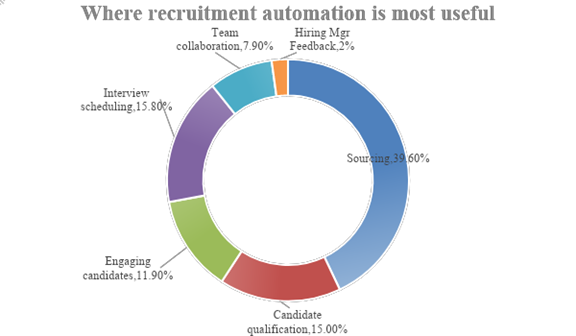
Source: Entelo, 2019
Or call it algorithmic fairness. Earlier the function was under the constant radar of intuition and (human) subjectivity. The unconscious (or conscious) manual bias against color, gender, and other forms are significantly addressed through automation. A large part of the credit goes to recruitment automation for a diverse workforce in many companies across the world. Many talent intelligence companies like Glider.ai, for instance, are creating automated assessment tools that not only eliminate bias but also hold the greatest promise of being ethical. This not only brings fairness to the recruitment system but also open to audit at any point in time.
One key reason behind implementing recruitment automation is assessing the entire pipeline of candidates rather than shrinking the pipeline due to time and manual constraints. While the global pandemic has ushered new models of talent acquisition structures, remote hiring and remote working have a paved path for tapping unexplored hiring processes. Algorithm-based hiring has made relationships stronger and trustworthy between recruiters and candidates or new joiners which means the better employee and candidate experience.
From automated assessments to virtual onboarding, the hiring landscape has been made much reliable and relevant, all thanks to automated hiring technologies.
While experts agree in a liaison that finding quality talent is the biggest challenge in recruiting, the quest to discover quality talent has been extraordinarily robust due to tool and platforms in hiring automation. Quality talent or candidate persona refers to discovering skilled and vetted candidates against a job persona. Finding quality talent is easier through recruitment automation because AI and predictive analytics assess the ‘best-fit between candidate and job much better and quicker than manual decisions.
A strategic combination between talent mapping and big data is already creating ripples in hiring innovation, ensuring faster talent engagement, and staying relevant among top candidates.
Well, it means the classic rule: “Never judge a book by its cover” and in recruitment, it also means never lose a chance of hiring a potential candidate. It has been observed that 78 per cent of resumes contain misleading statements and 46 per cent are filled with lies!
Never a management fad, but a proven way to seep through a volume of candidate resumes. What’s more, skill-based screening has a direct impact on job performance too. In the earlier times, skills came into the picture only at a later stage in the interview process, but recruitment automation being a game-changer in the hiring industry has assessed skills in the preliminary stage right away. This saves the company a lot of time and resources and allows it to shortlist candidates efficiently. And yes, companies have escalated their hiring cycle by almost 98 per cent through skill-based assessments!
Data is the new oil and how can the recruitment industry be far from it?
Data-driven hiring processes make candidate discovery easier and simpler. Statistically speaking, more than 75 per cent of recruiters believe data intelligence would make them more successful at their job and 55 per cent of them trust ATS and CRM as an important source of hiring.
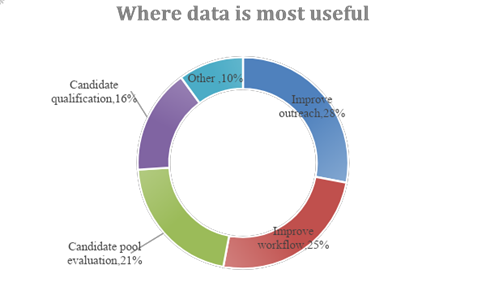
Source: Entelo, 2019
Recruitment automation captures real-time candidate data and schedules interviews at the candidate’s convenience. For example, Glider’s phone screen interviews enable recruiters to get candidate’s insights right through their phone screens. These visual proctoring assessments ensure the integrity, genuineness of the candidate and increase their experience.
In a hyper-connected world like ours, remote working or online hiring is increasingly bringing automation right into our homes which also means organizations are increasing their spending on sourcing the right talent. But why talent analytics? Simply said, it is software that gathers insights and metrics of a company’s workforce and potential candidates and helps make enhanced decisions about their performance and productivity. Talent analytics go beyond ATS and CRM in sourcing the best candidates possible. With talent analytics, recruiters can look at a lot more metrics than traditional spreadsheets. From estimation on time-to-fill to talent supply chain and from candidate touchpoints to employee engagement, recruiters can make sure that they stay competitive and relevant.
The bandwidth of hiring automation much more than recruitment and hiring. Remember TARS from Interstellar movie, a cool human-like robot that speaks and understands its human communication? Well, that’s a brilliant example of human-centric technologies. And in the context of automated recruitment processes, one can draw similar outlooks.
72 per cent of candidates who have a poor experience share it online – Human Capital Institute
Employer branding is all about the narratives the potential recruits can latch onto as they go further and further into the recruitment funnel. In other words, recruitment automation makes sure that candidates are not left in the dark. Instances that sure the application process is simple and easy and later acknowledging the candidate’s interest is one way of escalating employer brand. The right recruitment automation can optimize such kinds of endeavors and update the candidate’s status in the recruitment funnel periodically.
Candidate experience is one domain where the deployment of recruitment automation makes good sense. Because it is always a good idea to have a winning candidate experience with the support of tech advances. But a major concern is how much automation is too much automation? This is where hiring managers need to draw a line. While tasks like sourcing and screening, interviews and assessments, career sites, and social media are surely beneficial, yet interactions between candidates and employers are key in enhancing positive candidate experience and therefore are irreplaceable.
As per SHRM, approximately 82 per cent of candidates report that an ideal recruiter interaction is one that has a right mix of innovative technology and personal, human interaction – SHRM
In this regard, recruitment automation/recruitment CRM empowers recruiters to have better conversations, make sound decisions based on data. All in all, it means automation is not replacing recruiters, but is humanizing the recruitment process.
It simply means the percentage of successful placements made from the total jobs worked by a recruiter. (Successful Placements made/Total jobs worked) x 100 = Conversion Rate %)
Also, let’s look at some corresponding statistics.
The recruitment funnel conversion rates are like this: a whooping 69 per cent goes into hiring a candidate, 32 per cent into screening interviews and 1.2 per cent into offering acceptance – ideal.com
Bring AI and automation into the picture, there has been reduced time-to-fill by 75% on average. Not only that, but multiple stages of the recruitment funnel can also be managed and tracked with the deployment of the right ATS. Better hiring rates mean a better yield ratio.
Or high-volume hiring in other words. Gone are the days where recruitment teams used to manually screen large resumes, vet, and schedule bulk interviews. Recruitment automation and technologies ease a load of manual labor through tools like resume parser that screens resume in a fraction of time, chatbots that can converse with potential candidates, assess them digitally and even schedule video interviews that can schedule one-way mobile interviews at candidate’s convenient time.
Like a wormhole that can warp space-time, recruitment automation can reduce the numero uno pain point: resume screening. As a result, recruiters can shed those herculean recruitment tasks and augment their time for productive dividends.
Talent intelligent companies like Glider.ai can help employers hire qualified candidates faster through advanced AI and automation hiring tools like AI-powered stack ranking, video interviews, and real-world simulations. A quick journey through Glider’s website will provide a good understanding of all the benefits of recruitment automation just discussed till now. No wonder, Glider.ai is trusted by leading employers and agencies worldwide.

“The Perfect Candidate Just Hacked Us”: Inside the Global Playbook of Hiring Fraud That 100% test score might be your biggest red flag. Enterprise breaches don’t always start with phishing emails; sometimes, they start with a fake job interview. In this episode of Talented, Joseph Cole sits down with COO Ben Walker to unpack one […]
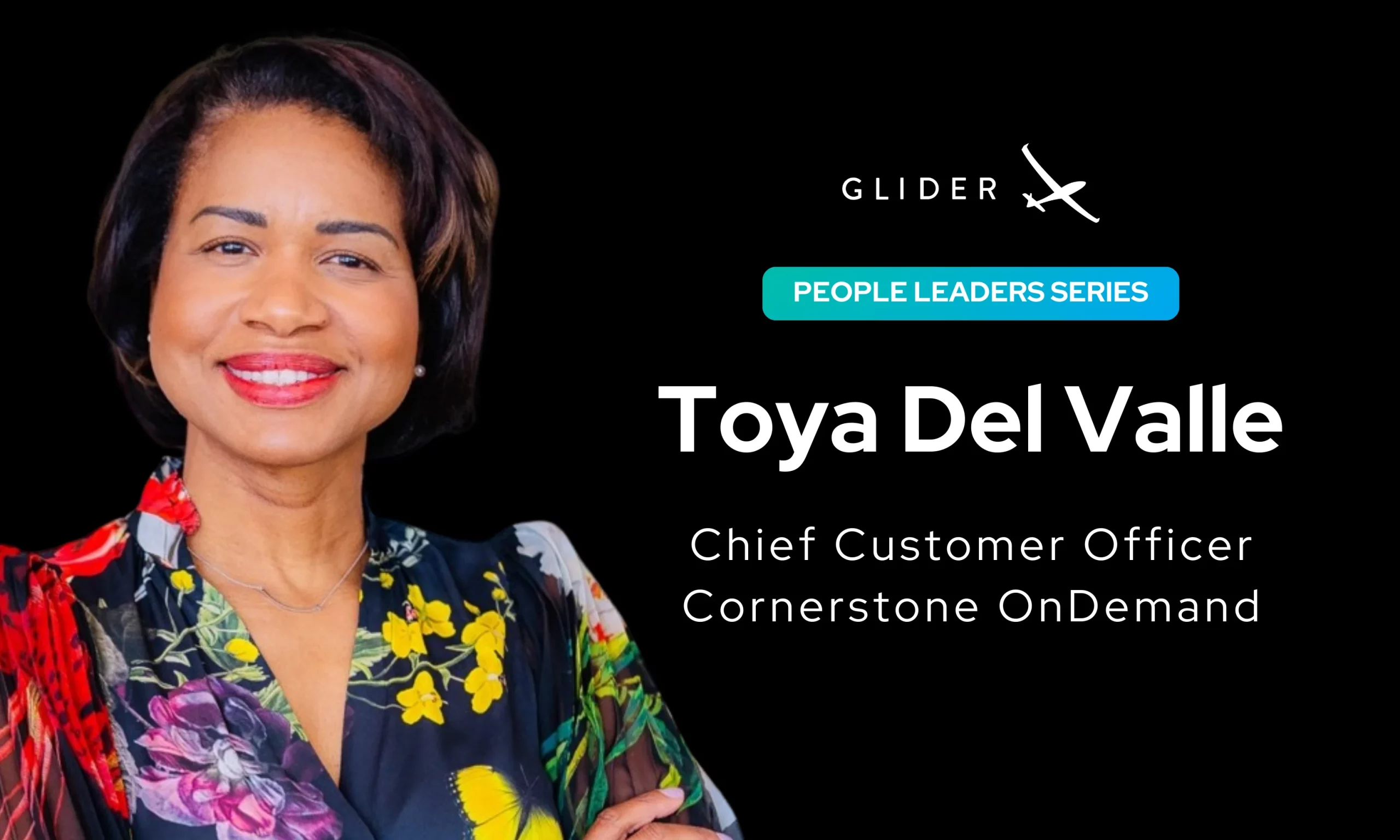
Can HR Stop Playing Buzzword Bingo with Skills and AI? If you’re an HR or TA practitioner or work in HR Tech in any capacity, AI and Skills-Based Hiring is what everyone is talking about. The problem? All the talk is diluting the importance of two very interrelated topics. Glider AI sponsored the Transformation Realness […]
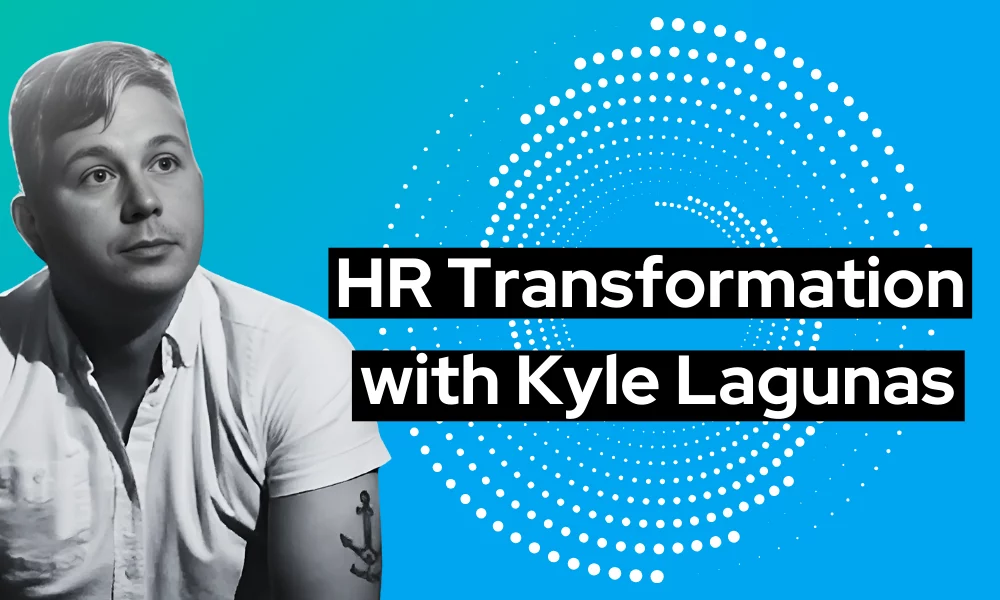
Q&A with HR/TA Analyst Kyle Lagunas The traditional playbook that was HR is being rewritten. AI is reshaping work, skills-based strategies are transforming hiring, and HR teams are under pressure to deliver more with less. HR isn’t just about managing people anymore—it’s about engineering the future of work. In this Q&A session, Kyle Lagunas and Joseph […]